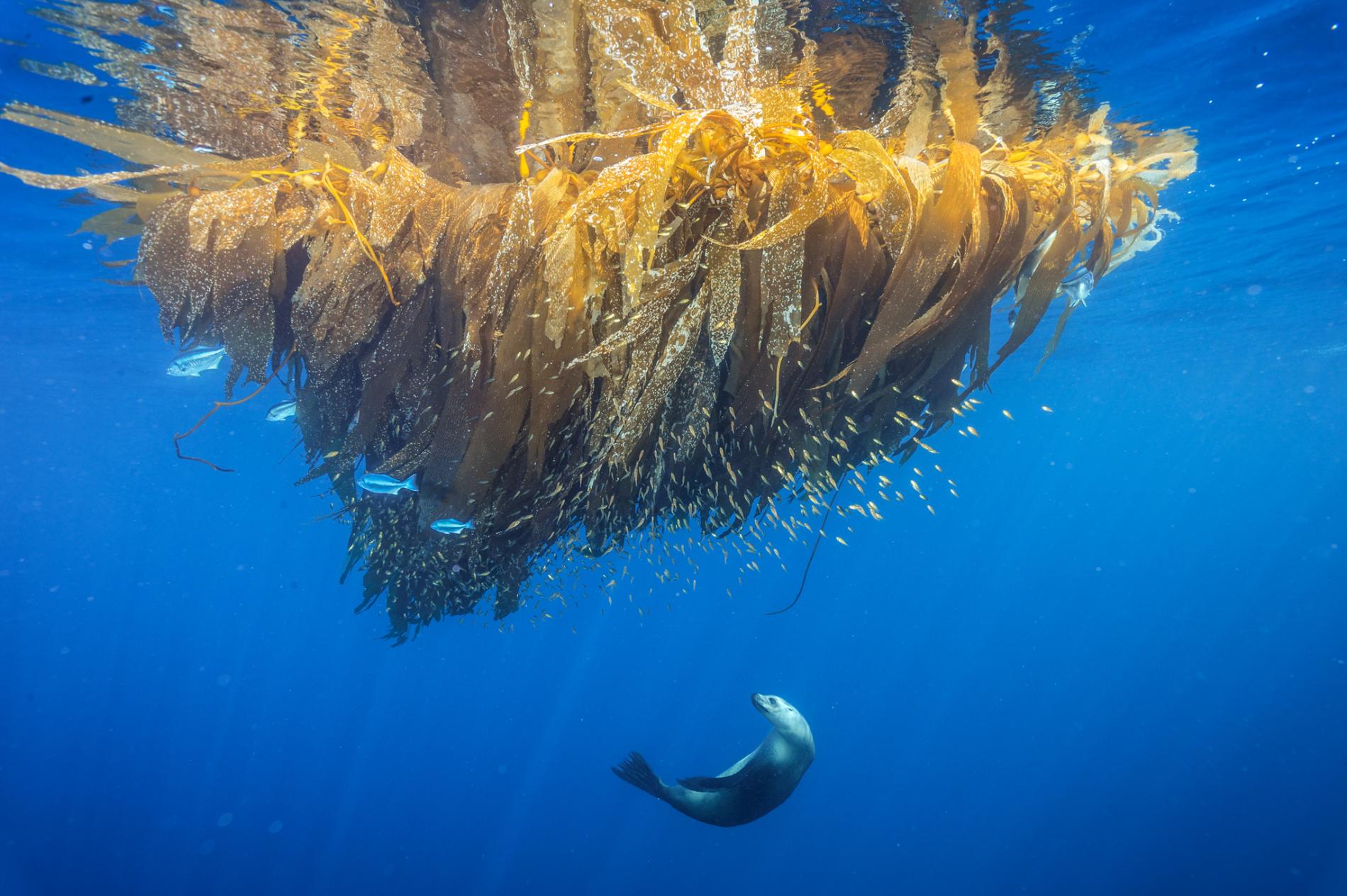“My interest has always been to make beautiful pictures of subjects that inspire me,” said marine wildlife photographer Brian Skerry when launching his first book ‘Ocean Soul’ back in 2011. But, he went on to say “there has been an evolution in my work that has led from striving only to capture nature’s beauty to a journalistic focus on the many threats facing our oceans and marine wildlife.”
A white harp seal pup on a block of ice / Photo: Brian Skerry.
Multi award-winning Skerry, whose work has been featured in publications including Sports Illustrated, The New York Times, BBC Wildlife, Paris Match, The Washington Post and The Wall Street Journal, has been a contract photographer for National Geographic Magazine since 1988, and during that time he has covered a wide range of stories that not only celebrate nature but aim to raise awareness, including the harp seal’s struggle to survive in frozen waters and the alarming decrease in the world’s fisheries.
A California sea lion hunts for fish on a kelp paddy at Cortes Bank, a seamount off San Diego / Photo: Brian Skerry.
A lecturer on photography, exploration and conservation issues, Skerry, like Carmen, serves on the World Wildlife Fund’s National Council, a group of distinguished scientific, business, political and philanthropic leaders who promote WWF’s conservation programs and help to raise essential funds. He is also a member of the WWF’s Marine Leadership Council, the protection of ocean environments and their wildlife both key focus areas for the conservation organization.
“We live on a water planet; yet, I wonder how many of us actually see it that way?” said Skerry. “Knowing this, a logical conclusion would be that mankind must do everything possible to protect this vital component of our home when clearly our own survival depends on it. Instead, we have treated our precious waters like a sewer, a place to throw chemicals and trash. We have removed wildlife from the sea for centuries and destroyed entire ecosystems while conserving very little. She [the sea] is resilient indeed, but will die a death from a thousand cuts unless we take bold steps to ensure her protection."
Related Reading:
All That Glitters, Really Isn't Gold
Seaweed: The New Sustainable Superfood?




